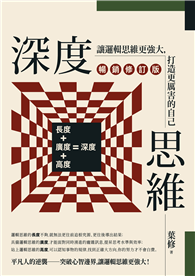This is an open access title available under the terms of a CC BY-NC-ND 4.0 International license. It is free to read at Oxford Academic and offered as a free PDF download from OUP and selected open access locations.
The past 200 years have witnessed revolutionary changes in living conditions for most people in the Global North. While the broad outline of these processes is well known through extensive research at the macro level, we still know very little about their micro-level foundations, largely due to the lack of appropriate data in most countries.
| FindBook |
有 1 項符合
Urban Lives: An Industrial City and Its People During the Twentieth Century的圖書 |
 |
Urban Lives: An Industrial City and Its People During the Twentieth Century 出版社:Oxford University Press, USA 出版日期:2024-07-30 語言:英文 規格:精裝 / 368頁 / 普通級/ 初版 |
| 圖書館借閱 |
| 國家圖書館 | 全國圖書書目資訊網 | 國立公共資訊圖書館 | 電子書服務平台 | MetaCat 跨館整合查詢 |
| 臺北市立圖書館 | 新北市立圖書館 | 基隆市公共圖書館 | 桃園市立圖書館 | 新竹縣公共圖書館 |
| 苗栗縣立圖書館 | 臺中市立圖書館 | 彰化縣公共圖書館 | 南投縣文化局 | 雲林縣公共圖書館 |
| 嘉義縣圖書館 | 臺南市立圖書館 | 高雄市立圖書館 | 屏東縣公共圖書館 | 宜蘭縣公共圖書館 |
| 花蓮縣文化局 | 臺東縣文化處 |
|
|
圖書介紹 - 資料來源:博客來 評分:
圖書名稱:Urban Lives: An Industrial City and Its People During the Twentieth Century
內容簡介
作者簡介
Martin Dribe is Professor of Economic History and the Director of the Centre for Economic Demography at Lund University.
Therese Nilsson is Professor of Economics at Lund University and Researcher at the Research Institute of Industrial Economics. Anna Tegunimataka is Associate Professor of Economic History at Lund University.Examining Net Zero: Creating Solutions for a Greener Society and Sustainable Economic Growth
Environmental Economics and Ecosystem Services
Environmental Economics and Ecosystem Services
Bankrolling Empire: Family Fortunes and Political Transformation in Mughal India
Advances in Relational Economics: Theoretical, Methodological, Philosophical and Empirical Foundations
Resource Management Performance: A Sectoral Analysis in the Post-Conflict Kurdistan Region of Iraq
Total Garbage: How We Can Fix Our Waste and Heal Our World
The Financial Markets of Roman Egypt: Risk and Return
Non-Market Valuation in South Asia: Bridging Theory and Practice in Environmental Economics
The Myth That Made Us: How False Beliefs about Racism and Meritocracy Broke Our Economy (and How to Fix It)
Environmental Economics and Ecosystem Services
Environmental Economics and Ecosystem Services
Bankrolling Empire: Family Fortunes and Political Transformation in Mughal India
Advances in Relational Economics: Theoretical, Methodological, Philosophical and Empirical Foundations
Resource Management Performance: A Sectoral Analysis in the Post-Conflict Kurdistan Region of Iraq
Total Garbage: How We Can Fix Our Waste and Heal Our World
The Financial Markets of Roman Egypt: Risk and Return
Non-Market Valuation in South Asia: Bridging Theory and Practice in Environmental Economics
The Myth That Made Us: How False Beliefs about Racism and Meritocracy Broke Our Economy (and How to Fix It)
|










